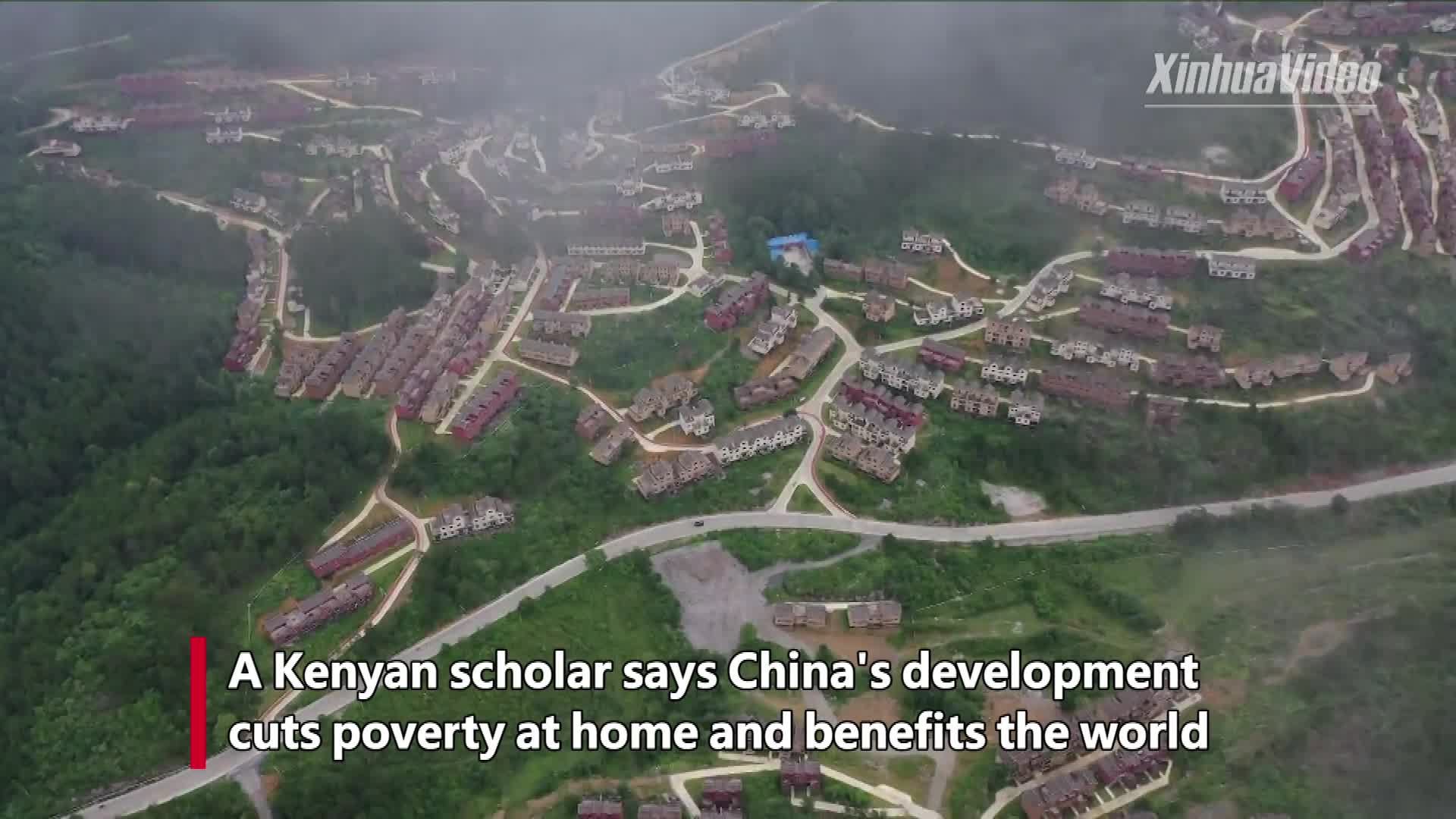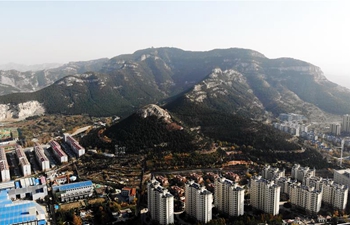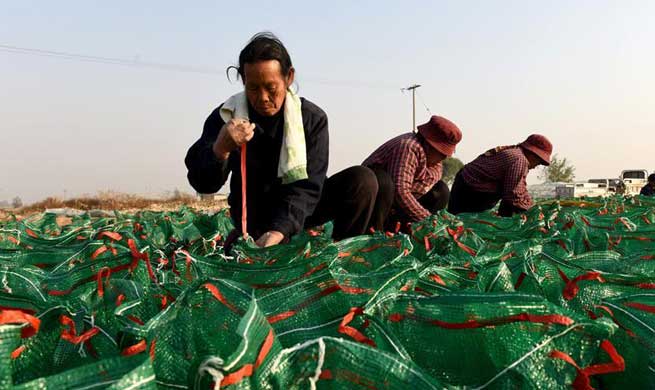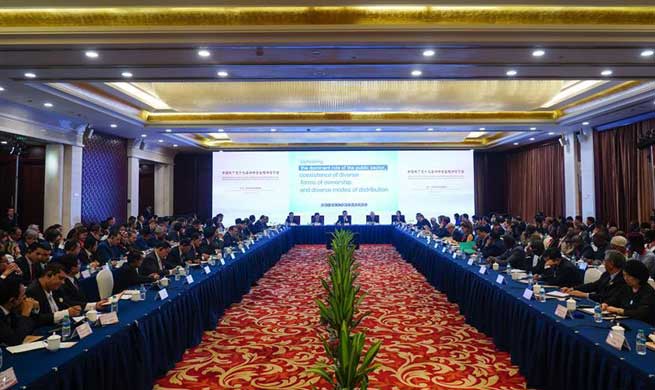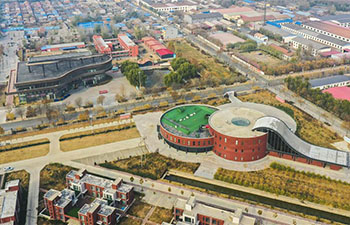ADEN, Yemen, Nov. 21 (Xinhua) -- Yemen's Prime Minister Maeen Abdulmalik along with other members of his cabinet returned on Monday to the country's temporary capital of Aden city, weeks after signing a power-sharing deal in Saudi Arabia.
The power-sharing deal was signed between the Yemeni government and the Aden-based Southern Transitional Council (STC) under the auspices of the Saudi government.
Before signing the Saudi-brokered deal, both parties were preparing for a new round of military conflict over the seizure of Aden and other neighboring southern cities.
However, with the support of the United Arab Emirates, Saudi Arabia succeeded in containing the tense situation and blocked the road to violence and bloodshed by inviting the two warring rivals to solve the issue through talks.
The reconciliation talks ended up with signing a power-sharing deal that will establish a new phase of cooperation and partnership between Yemeni parties in southern Yemen.
Upon his arrival at Aden's International Airport, the Yemeni prime minister affirmed his government's commitment to implement the deal by starting to normalize the situation in Aden and neighboring southern provinces.
Abdulmalik vowed to conduct arrangements for reforming the state institutions and absorbing all the political factions within the structure of the new technocrat government.
He pointed out that "everyone is in responsibility for pushing the tasks stipulated in Riyadh deal into success and it is not wise to maintain the rhetoric of tension."
A number of Yemeni experts believe that naming a new power-sharing government equally between the Yemeni government and the STC may lead to temporary stability in southern Yemen but not permanent.
"Permanent stability in the country's southern provinces won't be achieved easily through the Riyadh deal but we may witness a temporary peace," said Ali Ban Hadi, a retired military expert based in Aden.
"The STC leadership and even the southern people are aspiring to achieve other goals including ruling their cities alone, but they are obliged to share power with the Yemeni government," he said.
Ban Hadi added forming a new power-sharing government between the two sides won't make a big change in the long-term period but it will push for a temporary de-escalation and stability in the short-term period.
He concluded the corruption phenomenon increases when two Yemeni political parties share power "as they start exchanging accusations like what happened previously."
But people in the southern Yemeni regions still hope to see a real change in the performance of the new government that will be declared during the upcoming weeks.
The unification of the STC and the Yemeni government should be exploited in developing the state institutions and providing the local people with the daily basic services including water and electricity.
Nasser Muthana, a political activist based in Aden, said that the success of the new government will be measured by the development of the economic situation in the country's southern part away from the political conflict.
"The situation will be moved into peace and stability only when people experience development in their economic lives and employees get their monthly payments regularly without interruption," he said.
He added that "the general policy of the new government should be changed and concentrate on fighting corruption and developing the health situation because people are dying from epidemics."
Other experts expected that implementing the Saudi-brokered deal between the two sides won't happen easily and the military conflict may happen again.
They said that some military units refused to leave Aden and hand over their bases to the newly-recruited security forces formed lately in Aden, posing a serious threat to the success of the deal.
In August, forces loyal to the Aden-based STC engaged in intense street fighting with the government forces over the control of Aden and other neighboring southern provinces.
The STC seized all the state institutions after defeating the Saudi-backed Yemeni government forces during Aden battles.
Saudi Arabia persuaded the STC and Yemen's government to hold reconciliation talks, which succeeded in reaching a deal to form a new technocrat cabinet of no more than 24 ministers earlier this month.
The main points of the deal also included the return of the exiled Yemeni government to Aden and the unification of all military units under the authority of the ministries of interior and defense.
The Saudi-brokered deal excluded the Iranian-backed Houthis who are still controlling the capital Sanaa and other northern provinces of the war-torn Arab country.
The impoverished Arab country has been locked in a civil war since late 2014, when the Houthis overran much of the country and seized all northern areas.







